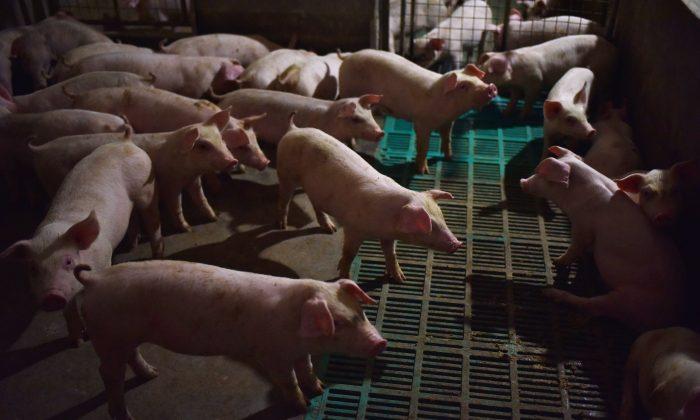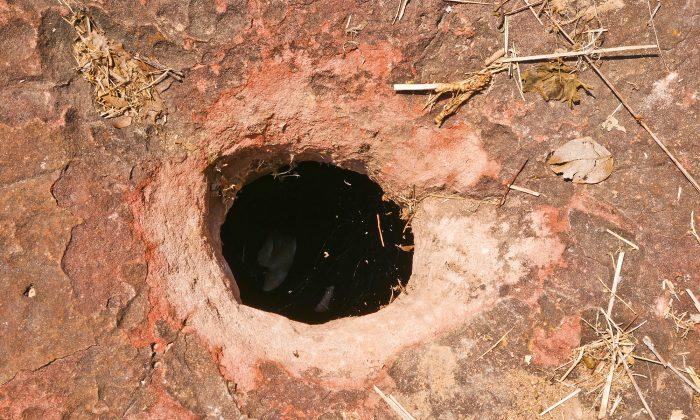Chinese authorities, however, appear to be seeking to keep the public in the dark.
A video posted to Twitter on Oct. 28 claimed to show a large-scale agricultural trading market in Jishou County, Furong Township in Hunan Province. There, the stands were all full, except for those where pork is sold, according to the Twitter post.
But an announcement from the Ministry of Agriculture and Rural Affairs on Oct. 30 only reported ASF outbreaks in Hunan’s Yuanling County. An earlier report, on Oct 23, identified Changde City and Yiyang City as sites of the first outbreaks of ASF in Hunan Province.
The illness was first reported in early August in northeastern China. It has since spread widely through 13 provinces and the directly governed municipality of Tianjin—accounting for almost half of the country’s regions.
ASF is highly contagious and kills nearly all pigs and wild boars that are infected. There is no known cure or vaccine. The disease is so far not known to affect humans, even if infected pork is consumed.
Scientists at the U.N. Food and Agriculture Organization told scientific journal Science that the illness likely arrived in China via imported pork products, and that a genetic analysis indicates the ASF virus found in China is closely related to the strain circulating in Russia.
The Chinese language Epoch Times sought to verify whether ASF had spread to Furong Township through phone calls to local residents. Mr. Li, from a local health clinic, told The Epoch Times that pigs in that area have all become sick, hence the farmers weren’t allowed to sell the pork. “The situation is serious. We haven’t had pork in the market for a week now,” he said.
An employee of a hotel in Furong Township also confirmed to The Epoch Times that pork isn’t allowed to be sold in the area.
Local Chinese authorities are seeking to keep new cases quiet. Mr. Chen, from Shaoyang City, which is several hours away from Furong Township, told The Epoch Times that local authorities have said that the carcasses of any pigs that contract ASF should be buried immediately so that the news isn’t leaked. He suspects that local officials and businesses are colluding to cover up the severity of the outbreak.
Meanwhile, Mr. Song, of Shandong Province, said about the ASF outbreak, “No one knows exactly where those dead pigs go.”
ASF testing is being heavily restricted by the Chinese regime. Currently, only the national level Animal Health and Epidemiology Center is allowed to conduct ASF testing. Even provincial epidemic control laboratories are only permitted to send samples, sources told Radio Free Asia in an Oct. 17 report.
The Chinese regime has a history of covering up disease outbreaks in order to protect against bad publicity or public panic, such as with the SARS epidemic in the early 2000s.
Epoch Times staff member Yi Ru contributed to this report.





Friends Read Free